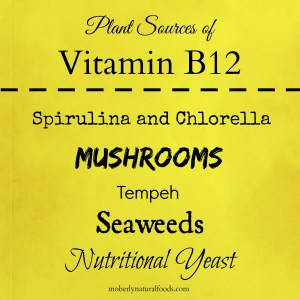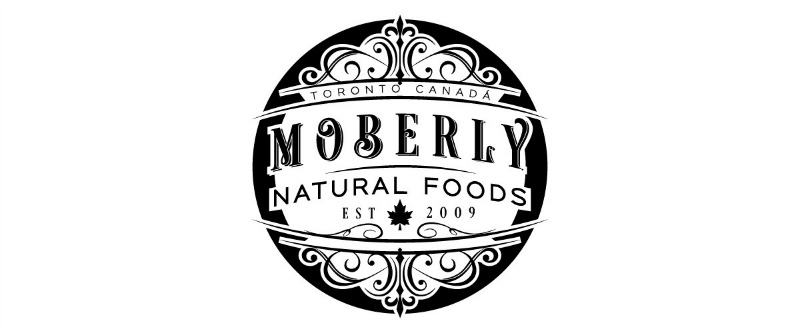When we think of going to a health food store, most of us are thinking more about physical health. But just as important as your physical health is your mental health. Are you eating in a way that promotes good mental health, too? Since this is Mental Health Week in Canada, we thought we’d take a look into it.

Fats for Mental Health
You had to know this one was coming, right? Since the human brain is approximately 60% fat, its proper function depends on this nutrient. It’s really no wonder that so many of us are stressed and depressed after surviving the fat-fearing 90s. We’ve literally been starving our brains of its most plentiful component.
Fish oils, thanks to their regulatory effect on several processes including neurotransmission and anti-inflammation, can help those suffering from a variety of mood and anxiety disorders, and are easy to take. For depression, you want to get a high dose of EPA – at least 60% of the total volume of the supplement. All of our fish oils from Progressive meet this criteria. We have quite a few options, in both capsule and liquid form.

Probiotics for Mental Health
In recent years, researchers have been focusing a lot of their efforts on the gut-brain connection. A whole host of studies have been done on both the benefits of supplementing with probiotics, and the benefits of eating probiotic foods. Having a healthy and diverse population of gut bacteria can help reduce stress, anxiety, and depressive symptoms.
Try to include some yogurt, kefir, kombucha or fermented vegetables every day, if you’re not taking a probiotic supplement. On the market for a good quality probiotic supplement? We can help you there, too. If you have a lot of digestive issues, stop by and talk to our in-store nutritionist. She can help you get back on track.

B and C Vitamins For Mental Health
Of all the vitamins, the Bs and the Cs are most tied to mental health. Since they are water-soluble, your body doesn’t store excess amounts of these vitamins, so you need to include them in your diet every day.
Vitamin B12 is one of the nutrients most closely associated with anxiety. It is common to be deficient in B12, especially if you have poor digestion, are taking PPIs or other antacid medications, or follow a vegan or vegetarian diet.

There are some plant sources of B12 (see above), but most comes from meat, seafood, eggs, and dairy.
If you find yourself low in B12, you may want to consider supplementation. There are many great just-B-12 supplements, but you may prefer a complex.
Other Bs that affect mental health include:
- B1 – memory impairment
- B2 – fatigue
- B6 – depression
- B9 – anorexia, behavioural disorders
As for vitamin C, it is the preferred food of your adrenal glands. If your stress and anxiety levels are high, this may be a contributing factor. Vitamin C can be found in fruits and veg, but it deteriorates with exposure to heat and light, and is lost over time. Including raw fruits and veg in your diet will help make sure your vitamin C intake is adequate.
A lot of people assume they’re getting enough if they drink orange juice, but there’s something the nutrition label people don’t tell you. Unless they’ve added a C supplement, the vitamin C content listed on the side of the carton is the vitamin C content of the oranges that went into the juice, not what’s left after processing. In many cases, there isn’t much left at all. Unless you’re fresh-squeezing your own every morning, you should include other vitamin C sources in your diet.
If you’re struggling with your mental health, a whole variety of nutritional deficiencies may be playing a part. Talk to your preferred healthcare provider about investigating further.

How You Eat Plays A Part
When it comes to mental health, it’s not just what you eat, but how you engage with food that makes a difference. Many of our eating practices contribute to poor mental health.
One of the worst things you can do for mental health is go on a restrictive diet. I’m not just talking about calorie restriction, either. If you’re following a diet that requires you, more often than not, to bring your own food that’s separate from everyone else’s, that can be a problem. While it can be necessary for those with allergies or autoimmune conditions like celiac, for the general population it contributes to feelings of isolation and deprivation. Repeatedly putting yourself in those situations can have an incredibly negative impact on your mental health.
Like it or not, there is a social component to how we eat, as a species. When we isolate around food – whether by separating ourselves physically or by what we’re eating – it starts to create unhealthy patterns around food. It may even be indicative of an eating disorder called orthorexia – an unhealthy obsession with healthy eating. (Here’s a great infographic on the subject for you to check out, too.)
How we talk about and experience food makes a difference, too. Murder is a moral issue, food is not. You can read more of my thoughts on this here.
I’ve also posted some descriptions and diagnostic criteria for a wide range of eating disorders here. If you recognize yourself or someone you love in one of those diagnoses, feel free to contact me via the links below, or contact the National Eating Disorder Information Centre.

Let’s Talk Supplements
I’m not going to talk too much here about St. John’s Wort or 5-HTP here, because that is a conversation you should be having with your healthcare practitioner. I do want to stress, however, that you should NEVER take either of these supplements concurrently with an antidepressant medication. The two mixed together can cause some really nasty side effects.
It’s amazing how connected food and mental health can be.
While this is by no means a comprehensive list, hopefully I’ve given you some food for thought (sorry for the dad joke) and a good idea of where to start. Don’t let the conversation end on Mental Health Week. Let’s #GETLOUD 365 days a year.
About The Author:
Kelly Boaz, CNP
Kelly is a holistic nutritionist, specializing in eating disorder recovery and food freedom. She is also a public speaker (TEDx King St. West, TDSB) and a writer. Learn more about Kelly, and about booking private consultations at kellyboaz.com Twitter/Insta: @kelly_boaz Facebook: /KellyBoazDotCom


Pingback: What Should I Eat? - Moberly Natural Foods